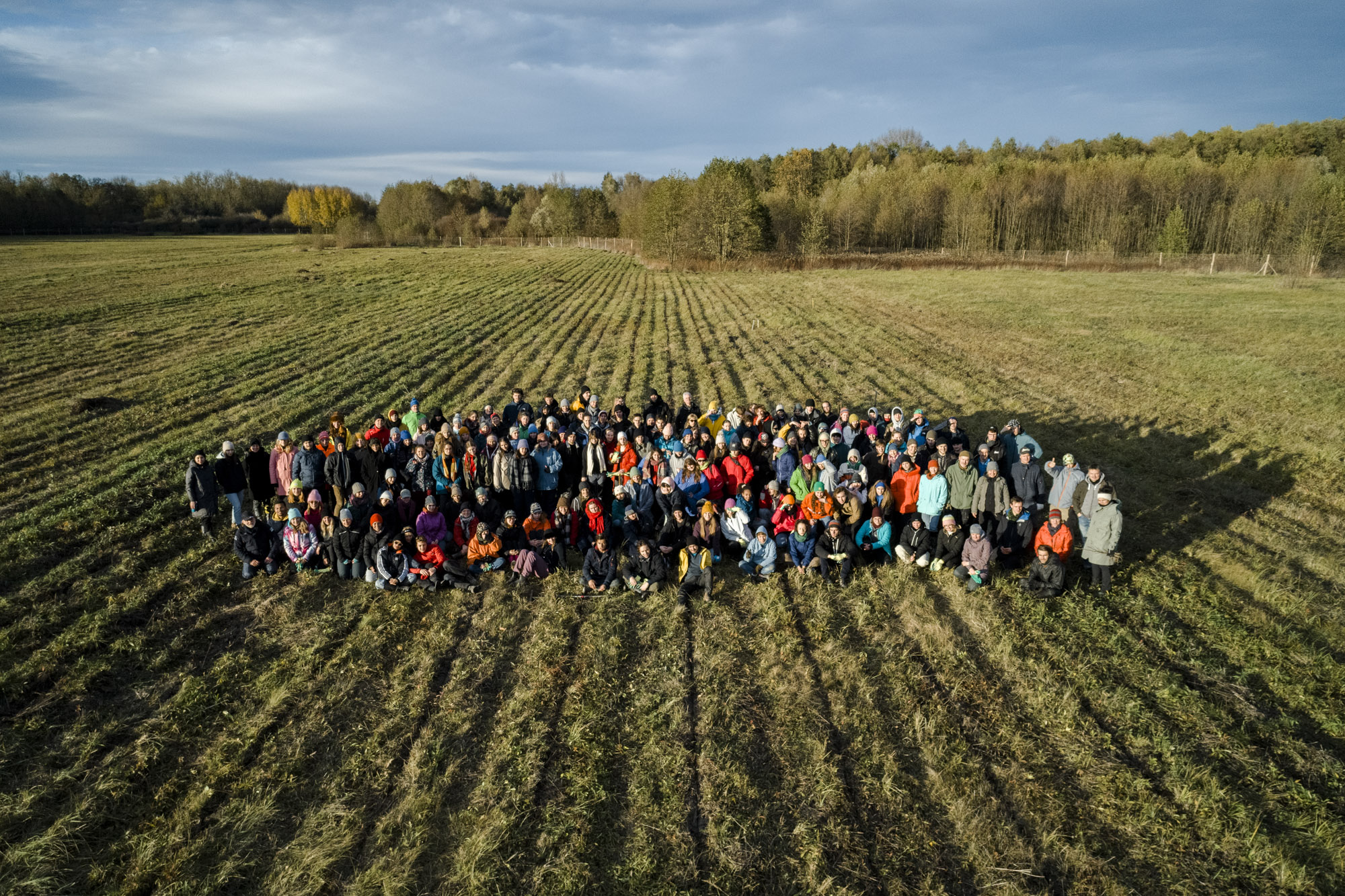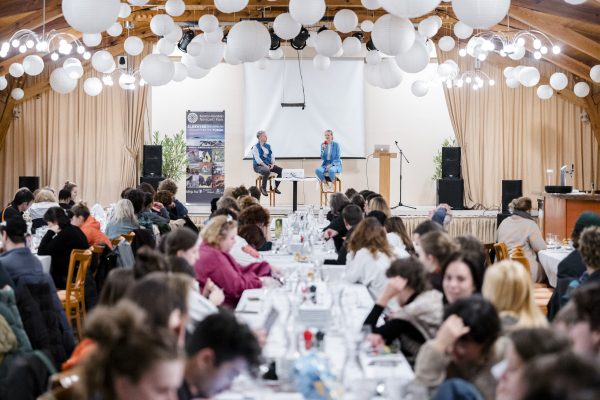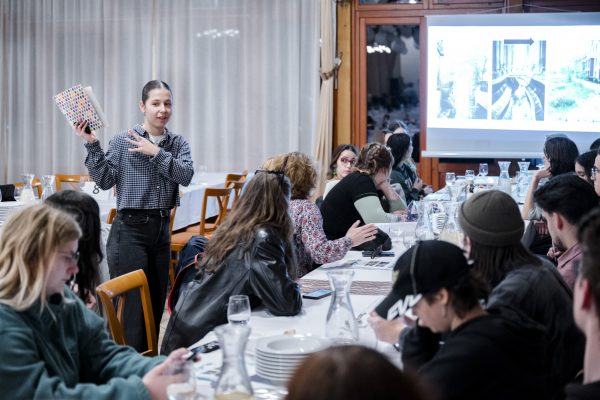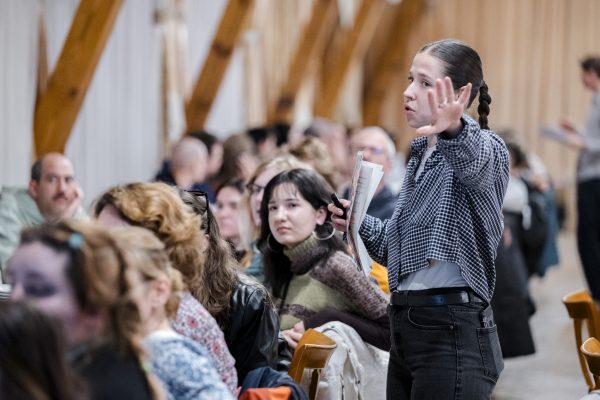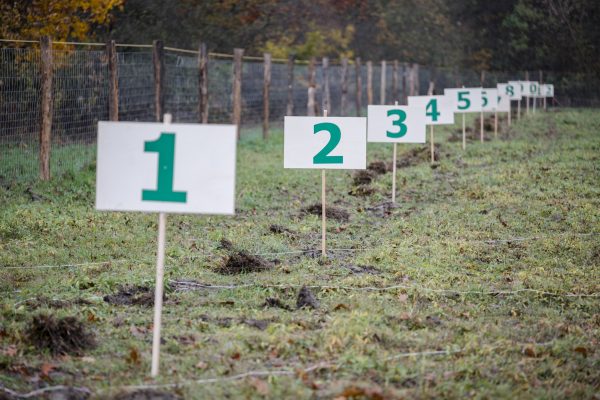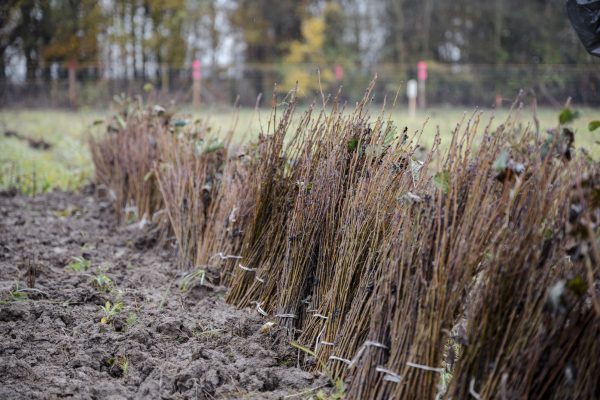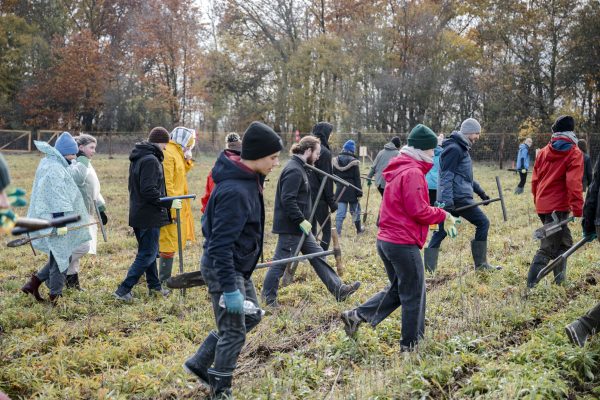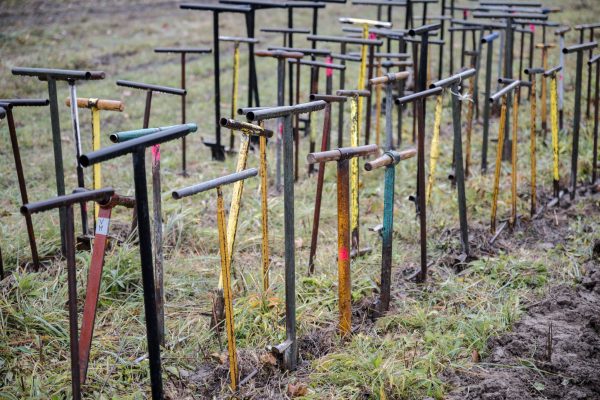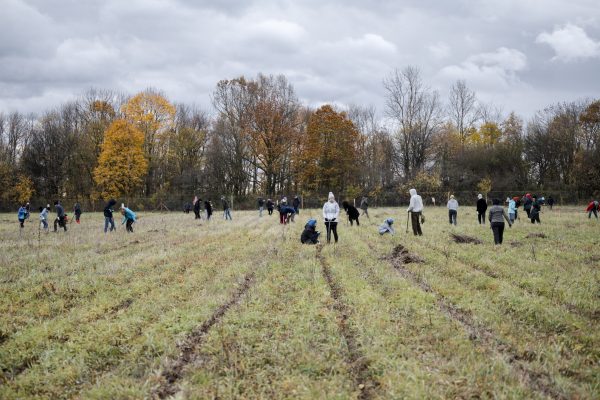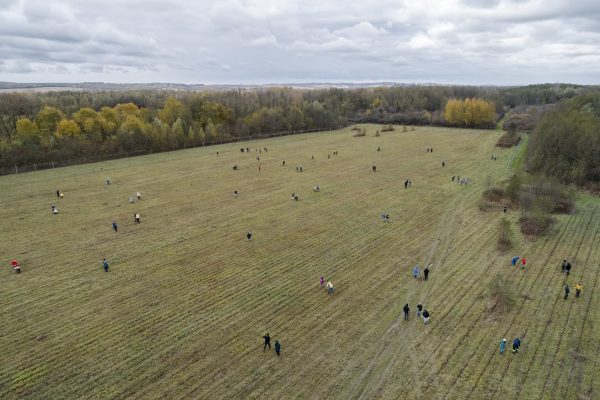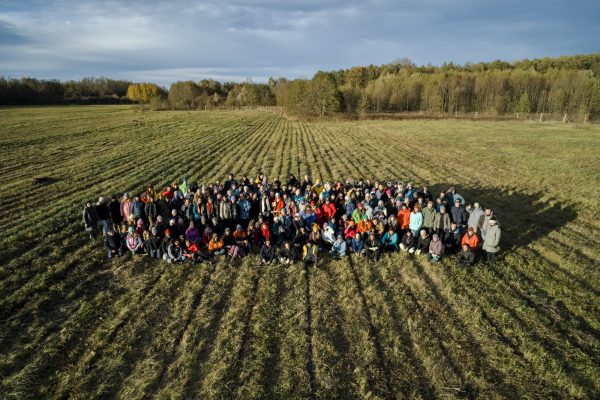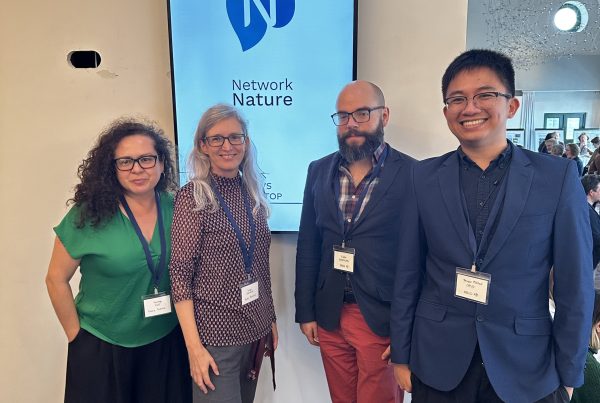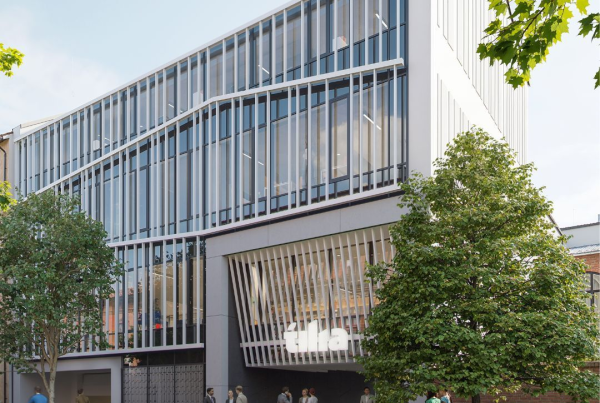PLANTING 20K TREES IN ONE DAY: MOME ZERO PLANTATHON
Last week, our Junior Consultant Luca Veress had the opportunity to participate in the first “Plantathon” event of the MOME ZERO program, organised by Moholy-Nagy University of Art and Design (MOME) with the aim of establishing a new forest at Balaton-felvidéki National Park. Luca was invited to speak and share some of the insights from our RDI projects on designing ecosystem services and leveraging the potential of nature-based solutions in urban environments.
The MOME Zero initiative is pioneering in Hungary. The program extends beyond campus boundaries, actively engaging in external climate protection projects and initiating research and development to support sustainable practices. As part of its unique nationwide effort, MOME is collaborating with three prominent Hungarian national parks to establish new forests covering 40 hectares, effectively offsetting the university’s future emissions.
Luca took part in two days of the event, organised between 16-18 November 2023, to share some of the theoretical background to urban greening as well as to actively participate in the planting of trees.

“The first day was about getting to know the theory. The foresters of the Balaton-felvidéki National Park gave a crash course on the right ways of tree sapling planting. Besides, there were various presentations on the importance of trees from different perspectives. I delivered a presentation to first year students and employees of the university. As the whole event was involved around trees, building on the expertise within ABUD, the presentation was centred on the powerful role of trees in cities and vegetation in general. To demonstrate this function, I was curious about the students’ understanding of the most pressing environmental problems in the urban scene.
Reacting to this, an intervention hierarchy was introduced to manage the environmental, and more specifically climate change related impacts within cities. To illustrate the operation of this intervention hierarchy, nature-based solutions (NbS) were introduced through the concepts from JUSTNature project. For example, the challenges or problems in the urban environment that NbS can efficiently mitigate, and some of the main categories of NbS were discussed. Additionally, I emphasized the crucial role of the social factor. This was demonstrated through the co-design process in Szombathely, one of the so called “city practice labs” of the JUSTNature project, where a wide variety of stakeholders (professionals and civils) were involved.
In the remaining part of the presentation, we were looking to answer questions such as: what is the technical or social value of urban greening and how did it materialize in the displayed case study? How can effective greening be achieved if urban public spaces are already contested?
On Friday, the program continued with practice, staring with a very early rise to go to the soon-to-be forest site. ‘Soon’ might be an ambitious term to be used, as the trees need 5-10 years to become human-sized. Despite the cold, windy and rainy weather, we managed to plant 20,000 trees on an area of 5 hectares (5,000 m2) in the Balaton-felvidéki National Park (Garabonc). Apparently, no one had ever planted this number of trees within one day in Hungary! As I never had the opportunity to plant trees with my hands, it was quite a cool opportunity to be involved in this initiative.”
We are grateful for this truly inspiring opportunity and look forward to seeing the saplings grow up to become a thriving forest!
Photos: MOME, Máté Lakos
